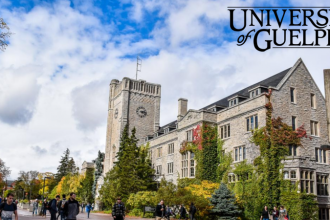Many Americans have expressed their concerns about college degrees, including the cost of education, the lack of high-paying, stable jobs, and student debt.
A 23-year-old resident of Dallas, Texas, Jordan Reconnu, has no regrets about not attaining a college degree. Jordan dropped out of college in 2019 after her first semester. She felt she wasn’t leaving anything new, and the idea of continuing school did not appeal to her. After releasing the cost of her college education, she dropped out and worked as a fast-food restaurant manager.
She told the media, “I wasn’t thrilled with taking basic classes for two years and wasting even more money on the same classes that we covered in high school.”
Reconnu stated that a college education would not improve her career prospects. She added that she feels it is worthwhile only for those pursuing careers in fields that require higher education. She stated, “I feel like experience is what makes people marketable.”
Jordan’s mother, Jacque Abron, supported her decision, though she earned a college degree and became a teacher. Abron was happy with her daughter’s decisions because she would not be stuck with student debts. She has soared more than $100,000 with interest over the years.
Abron told the media that college is overrated. She added, “I don’t see the use of a degree in this day and age. Employers are demanding higher education, and it serves no purpose.”
A recent Gallup survey revealed that a growing percentage of Americans are losing confidence in college education. The research, published in July, disclosed that 36% of Americans said that they still have confidence in higher education, while 32% of the respondents stated that they have little or no confidence in college education.
In previous decades, over 57% reported having a lot of confidence or a great deal in college education, and 10% didn’t have confidence in higher education.
41% of those who have no confidence in education stated that colleges are being too “too liberal” and trying to “brainwash” or “indoctrinate” students. 37% also think that colleges are not teaching the relevant skills or that graduates find it difficult to secure employment. Also, 23% expressed concerns about student loan debts and the costs of education.
Another research study conducted by the Education Advisory Board (EAB) discovered that 60% of parents of college applicants are most concerned about college costs, 40% are concerned about receiving scholarships, and 39% are concerned about student debts. Also, their biggest concern is about the safety of their children in school.
According to a 2021 Gallup Survey by Gallup, about 46% of parents advise their children not to go straight to college after high school. Some prefer their college to take a job after high school or learn some vocational skills, starting a business or doing community service.
Not all good jobs require degrees. Aria Razfar, a professor at the University of Illinois at Chicago’s College Education, stated that some young people seek employment in the booming tech industry that doesn’t require college degrees.
He told the media, “Over the last decade there has been a significant shift in access to knowledge as well as a shift in industry expectations.” “The rise of the tech industry, with less reliance on college certification, has led to many Generation Z students and their families wondering whether they really need a college education.”
A recent 2024 survey revealed that 63% of young Americans in Generation Z admit that there are many well-paying, stable jobs for high school diploma holders. Many also agreed that it would be much easier for degree holders. Some companies have scrapped college degrees as a requirement for hiring new employees.
The cost of education and student debt are also major concerns that are causing many Americans to lose confidence in higher education.
Razfar stated that funding for public education has declined since the 2008 recession, which placed a financial burden on students and their families.
He said: “This has also put significantly more pressure on institutions of higher education to focus on raising funds and private donors rather than holistic student development.” “This has led to an erosion of the arts and humanities in favor of more revenue-generating fields like STEM. Universities have ironically become less humane,” he said. “Thus, students and their families have serious concerns about ‘return on investment.'”















